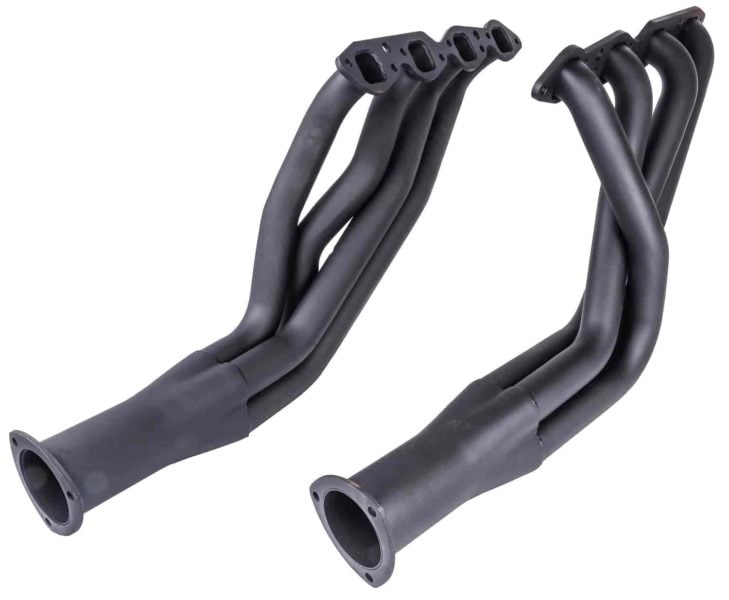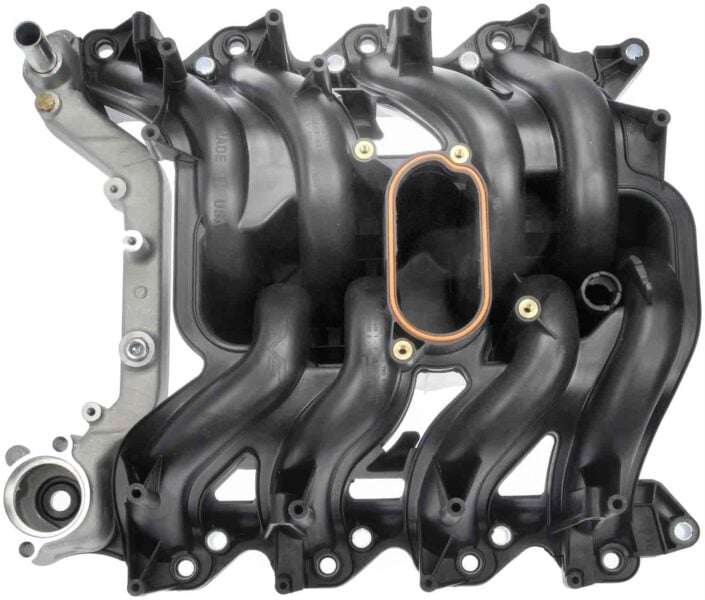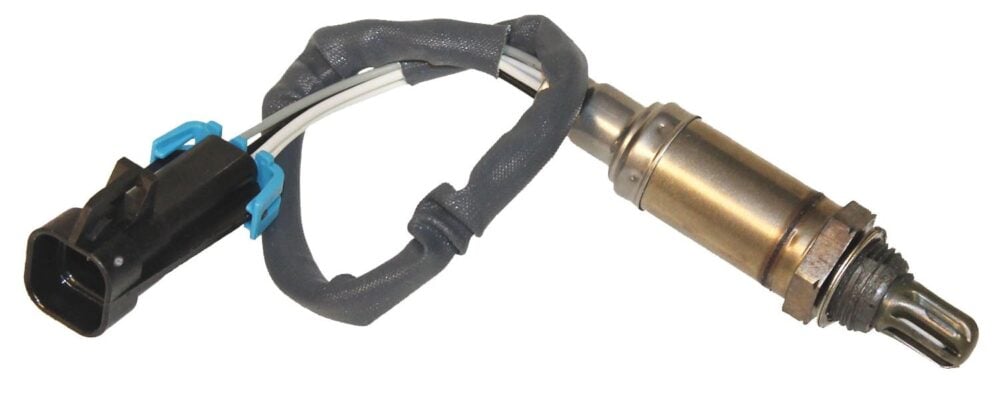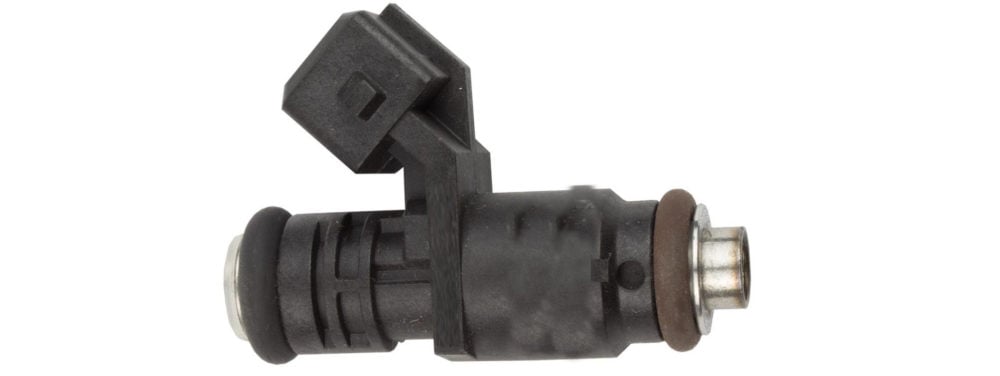
Chevrolet's Silverado 1500 is one of the best half-ton trucks on the market, famous for its rugged capabilities and powerful engines.
The Silverado title debuted in 1975 as a top-tier trim for models like the Tahoe and Suburban. By 1999, it had secured its own nameplate, succeeding the longstanding C/K. Today, the Silverado 1500 goes toe-to-toe with the biggest names in the light-duty truck segment: the F-150 and Ram 1500.
But the Silverado's good track record means nothing if you're not running the right motor oil, no matter its year. Even the popular Chevy 5.3 engine can't perform as designed if the wrong oil is pumping through it.
Motor oil is essentially a lubricant for your engine's moving parts, reducing friction and preventing them from grinding against each other. Oil also helps to keep the engine cool and running smoothly.
Not using the correct oil can seriously impact your pickup's performance and fuel economy. The wrong motor oil can even harm the engine, potentially reducing longevity.
Good news! This article details how to choose the right motor oil for your Chevy Silverado engine. We'll review viscosity grades, synthetic vs. conventional oil, capacities, change intervals, and more.
What Type of Oil is Required: Oil Specification & Viscosity Grade
Understanding Oil Viscosity
Oil viscosity basically refers to how thick it is, its flow resistance. Picture honey and water; honey is more viscous than water because it's thicker and flows more slowly. Engine performance is directly tied to oil viscosity.
If the oil is too thick, it won't flow quickly enough to lubricate the engine parts. This can lead to excess friction building in the engine, possibly causing it to overheat. Likewise, if the oil is too thin, it won't create an adequate lubricating film, leading to metal-on-metal contact.
This is where the Society of Automotive Engineers (SAE) comes into play. SAE ratings, such as 5W-30, help identify the oil's viscosity. In this example, “W” stands for “Winter,” while “5” relates to the oil’s low-temp viscosity, specifically -30 degrees Celsius. As for the “30,” this indicates the oil’s resistance to thinning at high temps, specifically at 100 degrees Celsius.
Conventional vs. Synthetic vs. Blend: Understanding the Differences
Conventional motor oil, full synthetic, synthetic blends, they all serve the same purpose - to lubricate and protect the engine. But they're formulated differently and have unique characteristics.
Let's start with conventional oil (also known as mineral oil), derived directly from crude oil, which has been the standard for many years. While great at lubricating an engine, it has larger and less uniform molecules. This can cause it to break down faster under high heat (think driving long hours on a hot day or hauling a trailer for a lengthy period), which can cause extra wear on your Chevy Silverado engine.
Next up is synthetic, engineered from chemically modified petroleum components. Synthetic oils have a more uniform chemical structure and generally offer several advantages over conventional oils. Some of these include better high-temperature stability, improved flow at low temperatures, and reduced friction.
What's more, synthetics tend to have fewer impurities, making them less likely to leave sludge and deposits behind that can expedite wear. They also have detergents built in to help keep your engine clean. However, in older engines, note that detergents may remove deposits acting as seals, possibly resulting in oil leaks.
As for synthetic blends, these fall in between conventional and synthetic. Synthetic blends tend to hold up better than conventional oil, meaning your engine stays protected for longer, while costing less than a full synthetic and being less likely to leak in older engines.
Speaking of cost, synthetic is often quite a bit pricier than conventional. Expect to spend $35-$65 for a five-quart jug of synthetic, while conventional should run closer to $20-$35 for the same amount. Synthetic blend comes in right in the middle, averaging roughly $25-$50 per five quarts.
For the Chevrolet Silverado 1500–often used for heavy-duty tasks like pulling a trailer or hauling a bed full of lumber–synthetic oil is typically a better choice. Its ability to maintain viscosity under extreme conditions helps keep the engine cool and well-lubricated, even under stress. This results in better performance, reduced engine wear, and often better fuel economy.
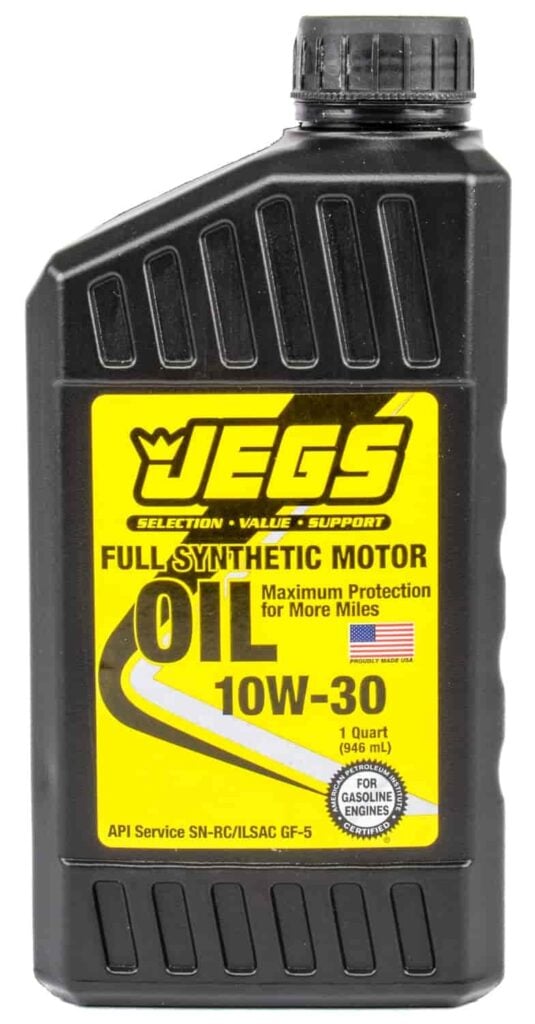
Manufacturer Recommendation
Engines like the Chevy 5.3 engine are designed to run best off specific oil types. Chevy typically suggests SAE 5W-30 for most Silverado engines, no matter the model year. Yet, some engines require an SAE 0W-20, like the 6.2 V8 and 3.0 Turbo Diesel.
Yet, these grades can vary depending on the age of the Silverado, or if you’re driving a C/K pickup before the name change. This is because older engines aren’t as efficiently engineered and tend to have more wear and tear, leading to wider clearances between engine parts. To ensure the components remain properly lubricated, a thicker motor oil is often recommended.
Ultimately, the safest choice is following what Chevy recommends in your Silverado 1500's owner's manual.
Oil Capacity
How Much Oil Does Your Silverado 1500 Need
Most Chevy Silverado engines take 6 to 8 quarts of motor oil.
For instance, the 4.3L V6 engine generally takes around 6 quarts, while the larger Chevy 5.3 oil capacity, or even the 6.2 V8, typically needs closer to 8. This can vary on the pickup’s model year, so make sure to check your owner’s manual if you’re unsure.
If you’re concerned about your oil level, you can also check it yourself. To do so, park your truck on level ground, turn the engine off, and wait a few minutes for the oil to settle.
Next, pop the hood, locate the oil dipstick, pull it out, wipe it clean, then reinsert it fully. Then, pull it out again and check the level against the markings on the dipstick. An acceptable range is anywhere between Min and Max.
As for condition, fresh motor oil will have a tan or caramel color, while dirty motor oil will appear dark brown or black.
Oil Change Intervals
To keep your Chevy Silverado engine running strong, you need to change its oil regularly. Generally, Chevy recommends intervals of about 7,500 to 10,000 miles for modern Silverado models. This can vary based on your driving habits and the type of oil you use.
Your Silverado may also be equipped with an oil monitoring system, which will alert you when it's time for a change. The system works by monitoring driving habits, miles since the last oil change, climate conditions, and more.
If you’re running an older C/K pickup, you’ll need to change the oil more often, every 3,000 to 5,000 miles or so. This is because these earlier engines were designed to run off conventional motor oil, which doesn’t hold up as well as synthetic or synthetic blends.
Importance of Using the Right Oil
First and foremost, the right oil minimizes friction between engine components. This is important because excessive friction can cause the engine to overheat, leading to costly repairs like a cracked block or blown head gasket. Motor oil also acts as a coolant, dissipating heat from the engine.
Moreover, the right oil keeps your engine clean. It prevents the build-up of sludge and other contaminants, which can clog the engine and hinder performance. This is especially crucial for Silverados, which are often put through more demanding tasks compared to the average vehicle.
Lastly, using the appropriate oil can enhance fuel efficiency. By ensuring the engine runs smoothly, it consumes less fuel, saving you money in the long run. So, not only does the right oil protect your engine, but it also keeps your wallet happy.
Shop JEGS for All Your Motor Oil Needs
You should now be fully equipped to choose the right motor oil for your Chevy Silverado engine.
While you can always walk into a local auto parts store, you may find it more convenient to order online and have your oil sent straight to your door. Consider JEGS for all your motor oil needs, a leading supplier of quality automotive parts.
Have more questions? Contact our team today.

